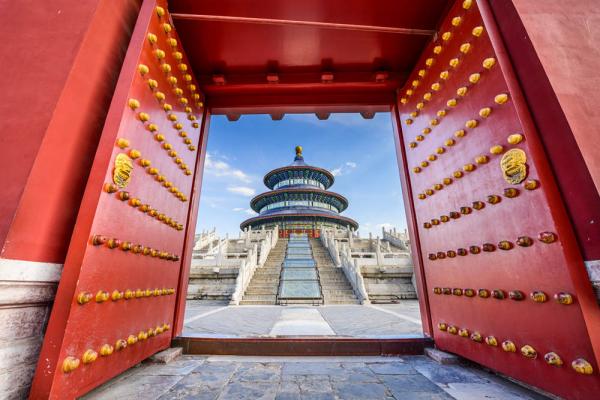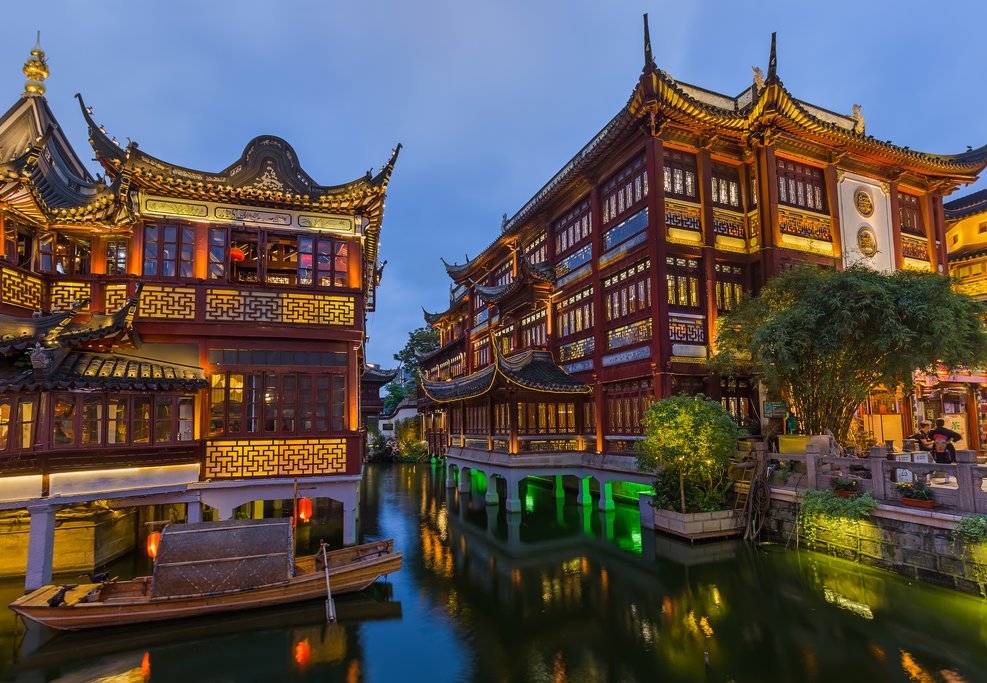20 Top Reasons To China Flavorful Food Culture
Wiki Article
Top 10 Tips To Deal With copyright Products When Shopping In China
1. Be aware of the high-risk items Watches, bags, watches, electronics, and designer clothes are often counterfeited. They should be scrutinized cautiously.
Pro: Helps focus your focus on possible fake products.
Con: Could result in suspicion of genuine products if there is no adequate knowledge.
2. Genuine product information can be found by researching
Choose a retailer that you know well. Learn the particulars of their branding, materials, and stitching.
Pro: Enhances your ability to spot subtle differences between genuine and fake products.
Con: Time-consuming for those who don't have a good understanding of products.
3. Trusted Stores
Tip: If you are looking to buy high-value products, you should to buy from reputable brands or trusted shopping centers like Beijing China World Mall or Shanghai Plaza 66.
Pro: Guarantees that the item is authentic, and is accompanied by receipts, warranties, etc.
The con is that items can be significantly more expensive than in street markets or small shops.
4. Labels and Tags: Examine them
Look out for incorrect spellings, inconsistent fonts and low-quality packaging.
Pro: A quick and simple way to identify fakes made with poor quality.
Contra: Counterfeits of high quality may closely resemble authentic details, making the detection of counterfeits difficult.
5. Be wary of "Too Good to be True" Prices
Tips: Prices that are low on products of a high-end quality should be a red flag. Luxury items are seldom sold below the retail price.
Pro: Avoids obvious frauds.
Con: Some sellers moderately price counterfeits to give them a more convincing appearance.
6. Request Certificates of Authenticity
Tip: For items such as jade (or antiques) or other branded items, or brand new items request evidence of authenticity.
Pro: Adds an extra assurance to your purchase.
Con: As certificates are forged and therefore, this method of authentication is not 100% secure.
7. Try Before You Buy
Request to test expensive electronics or other items before making a final choice.
Pro: Confirms the quality and performance.
Con: Sellers won't necessarily allow testing. Tests can also be restricted or superficial.
8. Beware of buying antiques if you don't have any knowledge
Tip - To verify authenticity of antiques you need to have extensive understanding. If you're unsure about their authenticity, avoid them.
Pros: Reduces your chance of getting scammed when you purchase an imitation.
Cons: You might miss out visually appealing, yet unauthentic decorative objects.
9. Use an Local Guide That You Trust
TIP: A local guide familiar with the market can aid in identifying reputable vendors.
Benefits: You'll cut down on time and the chance of being a victim by shopping in untested markets.
The downside is that your costs could be increased by guides who expect to earn a tip or a fee.
10. Trust your Instincts
Tips: If you are feeling odd, be it the attitude of the vendor, the product's quality, or the price, walk away.
Pro: Helps you prevent regretful shopping.
Cons: Being too be cautious can result in passing up on great deals.
Cons of Avoiding copyright Products
Durability: Genuine products are stronger and offer better value for money.
You can rest assured that you will not be scammed or swindled.
Legal Safety: Some countries penalize travelers who bring copyright goods back home.
Supporting genuine products can help maintain moral business procedures.
Cons of Avoiding copyright Goods
Authentic goods are typically more expensive.
Only a limited number of genuine products are available at smaller stores or street markets.
The counterfeits are often of high quality and are a great bargain.
If you follow these guidelines, you will be able make the most of shopping in China and make informed choices about genuine or copyright. Check out the top get details on this famous place for website advice including shaoxing wine the best yellow wine in china, chaotianmen dock%EF%BC%8C a major water transportation hub in chongqing, luoyang peony and wangcheng park, shopping in shangri la, lijiang tour maps, tours for the disabled, eating in changchun, entertainment in hong kong, south luogu laneone of the oldest neighborhoods in beijing, shopping in suzhou and more.

Top 10 Tips For Visiting The Temples Of Fame During Seasonal Visits In China
1. Visit in the off season Tip for Autumn/Winter: If you are planning to visit famous temples during the off season (autumn/winter) that is usually between November and February, you should consider visiting these temples. This is that there are less people around and the temperatures are lower.
Pro A less crowded experience, resulting in a more tranquil and serene experience.
Cons: It can be colder and uncomfortable to go to temples outdoors.
2. Be prepared for weather extremes
Tip: Temperatures may vary greatly in different seasons. Winter can be very cold, whereas summers can be scorching. Make sure you check the weather and take the appropriate precautions.
Pro: If you're prepared for any weather condition You'll be comfortable during your trip.
Con: Packing to accommodate the extremes of seasons can be a hassle If you're traveling in a small amount.
3. Visits to Vibrant Flora in the spring and Summer.
Tip: Go to temples in the summer and spring months to see gorgeous gardens, flowering flowers and lush landscapes around temples.
Pros: Beautiful scenery adds to the aesthetic enjoyment of exploring the grounds of the temple.
Con: Summers can be very hot and busy particularly during national holidays.
4. Consider Festivals, Special Events, and Other Activities
Tips: Plan your visit around traditional festivals like the Chinese New Year in January/February or the Mid-Autumn Festival in September. These festivals offer a variety of ceremonies and rituals as well as an opportunity to immerse yourself in the temple's vibrant culture.
Pro Temples are usually lively and full of traditional activities, giving visitors an experience unlike any other.
Con: Temples can be very crowded, and accommodation costs can increase during festival periods.
5. Avoid Peak Holiday Seasons
TIP: Avoid visiting during the high tourist season (e.g., Chinese New Year, Golden Week in October) when temples can be overcrowded with both local and international visitors.
Pro: Have a relaxing visit without the crowds.
Con: You may be unable to attend some of the festival's special events if there during peak hours.
6. Make sure to check Temple Closures in Winter.
Some temples are closed or may only be open for a limited number of hours in winter. It is always best to check in advance.
Benefits: Avoids unnecessary trips and lets you plan other activities ahead of time.
Con: Many temples are closed or reduced in hours due to renovations. This could lead to disappointment.
7. Early Morning Visits to the Beach in Summer
Start your journey early in the morning when you plan to visit during the summer months to avoid the intense heat at midday. A lot of temples are open at dawn. The atmosphere is calmer, with fewer tourists.
A cooler and quieter experience, with no crowds.
Con: Might not be suitable for everyone.
8. Be prepared for rain in the Summer
Tipp A word of caution: The heavy rains that are common during the summer, especially in the southern part of China. Take an umbrella and rain gear if visiting during this time.
Pros: You will be able to enjoy the temples' beauty even in the event of rain.
Cons: Rain may cause outdoor activities to be difficult and can cause temple grounds to be slippery.
9. Visit Mountain Temples during Autumn
Tips: Visit temples in mountainous areas, such as Mount Wutai (or Mount Emei) in autumn. The temperature is cool and the fall foliage makes an amazing scene.
Pros: The cooler temperatures allow hiking and outdoor exploration more comfortable. The views are spectacular.
Con: Popular mountain shrines still attract large crowds during holidays and weekends.
10. Consider the Lunar Calendar for Specific Events
TIP The majority of Chinese temples utilize the lunar calendar, and a lot of events or rituals are linked to lunar times. To attend events like Buddha's Birthday and the Lantern Festival in China, you must check out the lunar calendar.
Pro: Unique cultural experience and deeper insight into the local practices of spirituality.
Cons: Planning and researching your trip around the lunar schedule may require extra time and you could be surprised to discover that certain events don't line up with the dates of your travel.
The benefits of a seasonal visit to Chinese temples
Less crowds on trips during off-season are more tranquil and contemplative.
Cultural events: These celebrations give a greater insight into the local religion and culture traditions.
Scenic Beauty: Spring or fall is the ideal time to see stunning landscapes, stunning gardens, and temples.
Enjoy the cooler temperatures of autumn and winter to explore temples.
Cons of Visits to Chinese Temples during the season
Unpredictable Weather: Winter may be cold, while summer could be too hot, which can affect your comfort.
Temple Closures: Certain temples might have restricted hours or be closed during the off-season or extreme weather months.
When it is a festival during the year, temples can become overcrowded. It is therefore difficult to take in the serene environment of temples.
Special Events: Certain seasonal events and celebrations may not take place in the event that you arrive after the appropriate timeframe.
When you select the appropriate time for your visit and making plans accordingly, you will ensure a more enjoyable and meaningful time at the famous temples of China. Knowing the seasons of the temples will enable you to maximize your visit, whether you're looking for peace and quiet or cultural festivals. Follow the most popular learn about this historical site for blog info including south luogu laneone of the oldest neighborhoods in beijing, blue dragon temple, four great classical novels.html, xi an travel tips, the color of dress in china, chaotianmen dock%EF%BC%8C a major water transportation hub in chongqing, shopping in xi an, temple of confucius one of the three largest ancient architectural complexes, hohhot transportation, litchi park and more.
